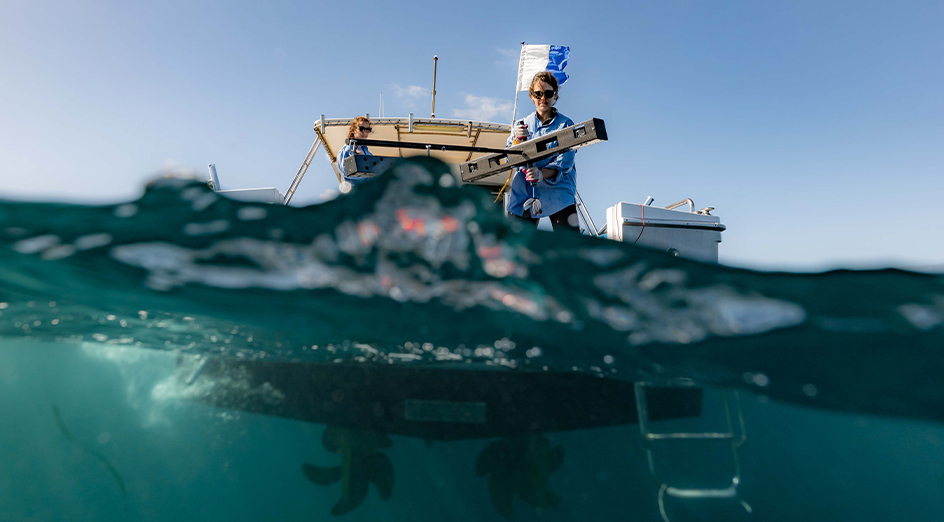
Researchers from The University of Western Australia and Cefas have partnered to deliver the world's largest non-intrusive underwater camera network. The network will document ocean wildlife including sharks, tuna and billfishes, to help protect marine biodiversity and the future of our oceans.
The Global Ocean Wildlife Analysis Network, launched by the UK government, covers 4 million square kilometres of ocean, and will collect important biological information across ten British Overseas Territories in the Caribbean, and the south Atlantic, Indian, Pacific and southern oceans.
UK Prime Minister Boris Johnson announced the Global Ocean Wildlife Analysis Network, stating that "the marine wildlife living along the coastlines of British Overseas Territories was some of the most spectacular in the world and we must do more to protect it".
"Cutting-edge technology, such as these cameras, will be vital in our crusade against climate change. Our marine experts are world-leaders in protecting our ocean and the myriad of species that live within it."
UK Prime Minister Boris Johnson
"Cutting-edge technology, such as these cameras, will be vital in our crusade against climate change. Our marine experts are world-leaders in protecting our ocean and the myriad of species that live within it," he said.
The network's establishment comes at a time when information about the life in our seas is more needed than ever, as we build ocean resilience and seek to halt and reverse declines in ocean biodiversity across the globe.
Tuna, oceanic sharks and billfishes are among the most threatened animals globally. Oceanic sharks have declined by more than 70 per cent in the last 50 years and some tuna are down to 5 per cent of their pre- industrial fishing numbers.
The network is comprised of stereo-Baited Remote Underwater Video Systems (BRUVS) developed by Blue Abacus, which is co-founded by UWA's Professor Jessica Meeuwig. These BRUVS will be deployed by the ten participating Overseas Territories as they address specific information needs in relation to their maritime jurisdictions.
"This program will give decision makers the evidence they need to act decisively in support of their blue economies."
Professor Jessica Meeuwig
Professor Jessica Meeuwig said the world's tuna, sharks and large reef fish continued to decline and the trend must be reversed.
"This program will give decision makers the evidence they need to act decisively in support of their blue economies," Professor Meeuwig said.
"We are delighted that the UK government and Overseas Territories support the drive for increased knowledge as we rebuild our oceans.
"Our refinements to conventional underwater cameras are what makes the rollout of this program possible over four ocean basins, the largest single such government-supported initiative globally.
"We look forward to working with the communities in the Overseas Territories, building on their local knowledge and experience."
Cefas Project Lead Dr Paul Whomersley said the British Overseas Territories were taking a global lead in protecting oceans and the wildlife and livelihoods that it supported.
"The Global Ocean Wildlife Analysis Network will provide the Territories with a world-first network of stereo-baited remote underwater video systems which will enable us all to better understand the biodiversity, functioning and connectivity of these ocean areas, while providing valuable and necessary data to inform and develop marine management and protection strategies," Dr Whomersley said.






